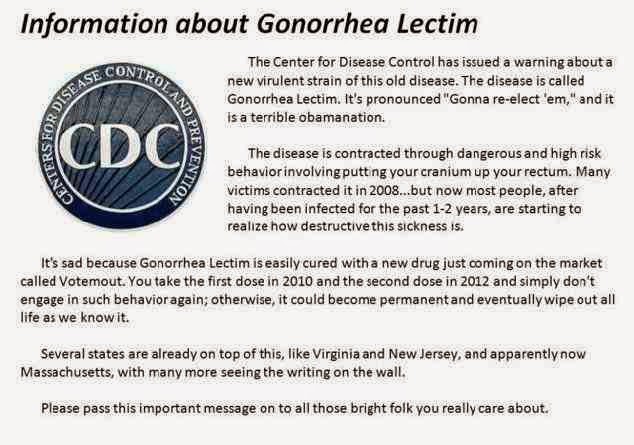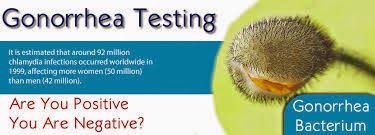As with most sexually transmitted diseases, the risk of infection can be reduced significantly by the correct use of condoms and can be removed almost entirely by limiting sexual activities to a mutually monogamous relationship with an uninfected person.

As of 2010, injectable ceftriaxone appears to be one of the few effective antibiotics. This is typically given in combination with either azithromycin or doxycycline.
Because of increasing rates of antibiotic resistance local susceptibility patterns must be taken into account when deciding on treatment. Many antibiotics that were once effective including penicillin, tetracycline, and fluoroquinolones are no longer recommended because of high rates of resistance. Resistance to cefixime have reached a level such that it is no longer recommended as a first-line agent in the United States, and if it is used a person should be tested again after a week to determine whether the infection still persists. Cases of resistance to ceftriaxone have been reported but are still rare, though public health officials are concerned that an emerging pattern of resistance may predict a global epidemic.
The UK's Health Protection Agency reported that 2011 saw a slight drop in gonorrhoea antibiotic resistance, the first in 5 years.

It is recommended that sexual partners be tested and potentially treated. One option for treating sexual partners of people infected is patient-delivered partner therapy (PDPT), which involves providing prescriptions or medications to the person to take to his/her partner without the healthcare provider's first examining him/her.
The American Centers for Disease Control currently recommend that individuals who have been diagnosed and treated for gonorrhea avoid sexual contact with others until at least one week past the final day of treatment in order to prevent the spread of the bacterium. Also, previous infection does not confer any immunity, and a person who has been infected can easily become infected again by exposure to someone who is a carrier for the bacterium, whether or not that person has any infectious signs or symptoms of their own.
Like the bacteria that cause syphilis, these fragile, "fastidious" bacteria cannot sustain themselves outside the body and will rapidly die within minutes to hours. Soap and water can effectively remove the bacteria from the hands, and washing bedding and clothing is seldom necessary. The chlorine of most swimming pools destroys it immediately.

To cure a gonorrhea infection, your doctor
will give you either an oral or injectable antibiotic. Your partner
should also be treated at the same time to prevent reinfection and
further spread of the disease.
It is important to take all of your antibiotics even if you feel better. Also, never take someone else's medication to treat your illness. By doing so, you may make the infection more difficult to treat. In addition,
- Tell anyone you have had sex with recently that you are infected. This is important because gonorrhea may have no symptoms. Women, especially, may not have symptoms and may not seek testing or treatment unless alerted by their sex partners.
- Don't have sex until you have completed taking all of your medicine.
- Always use condoms when having sex.

I Don't Treat Gonorrhea?
Untreated gonorrhea can cause serious and permanent problems in both women and men.
In women, if left untreated, the infection can cause pelvic inflammatory disease, which may damage the fallopian tubes (the tubes connecting the ovaries to the uterus) or even lead to infertility. And untreated gonorrhea infection could increase the risk of ectopic pregnancy, a condition in which the fertilized egg develops outside the uterus. This is a dangerous condition for both mother and baby.
In men, gonorrhea can cause epididymitis, a painful condition of the testicles that can sometimes lead to infertility if left untreated. Without prompt treatment, gonorrhea can also affect the prostate and can lead to scarring inside the urethra, making urination difficult.
Gonorrhea can spread to the blood or joints. This condition can be life-threatening. Also, people with gonorrhea can more easily contract HIV, the virus that causes AIDS. People with HIV infection and gonorrhea are more likely than people with HIV infection alone to transmit HIV to someone else.
Gonorrhea Affect Pregnancy and Childbirth?
Gonorrhea
in a pregnant woman can cause premature delivery or spontaneous
abortion. The infected mother may give the infection to her infant as
the baby passes through the birth canal during delivery. This can cause
blindness, joint infection, or a life-threatening blood infection in the
baby. Treatment of gonorrhea as soon as it is detected in pregnant
women will lessen the risk of these complications. Pregnant women should
consult a doctor for appropriate medications.
Can I Prevent Gonorrhea Infection?
To reduce your risk of gonorrhea infection:
- Use condoms correctly every time you have sex.
- Limit the number of sex partners, and do not go back and forth between partners.
- Practice sexual abstinence, or limit sexual contact to one uninfected partner.
- If you think you are infected, avoid sexual contact and see a doctor.
Any
genital symptoms such as discharge or burning during urination or an
unusual sore or rash should be a signal to stop having sex and to
consult a doctor immediately. If you are told you have gonorrhea or any
other STD and receive treatment, you should notify all of your recent sex partners so that they can see a doctor and be treated.
Modern antibiotics make it
possible to cure gonorrhea infection in most instances. The emergence
of drug-resistant strains of gonorrhea is a growing challenge. Most
states provide free diagnosis and treatment at state-sponsored health
clinics. Healthcare professionals will usually give an injection of
strong antibiotic upon diagnosis. Some follow-up may also be necessary.
Healthcare professionals are required by law to report the infection. Public health officials will identify, contact, test, and treat any partners of the affected person who may have been infected to help prevent the spread of the infection. Other people these individuals may have had sexual contact with will also be notified.
Some strains of gonorrhea have developed resistance to common antibiotics. These cases may require more extensive treatment (usually with more expensive antibiotics) or combinations of antibiotics. Scientists are working to develop vaccines to prevent gonorrhea infection.
Healthcare professionals are required by law to report the infection. Public health officials will identify, contact, test, and treat any partners of the affected person who may have been infected to help prevent the spread of the infection. Other people these individuals may have had sexual contact with will also be notified.
Some strains of gonorrhea have developed resistance to common antibiotics. These cases may require more extensive treatment (usually with more expensive antibiotics) or combinations of antibiotics. Scientists are working to develop vaccines to prevent gonorrhea infection.
Sources & References
- "Expedited partner therapy in the management of sexually transmitted diseases". February 2006. Centers for Disease Control and Prevention (CDC).
- CDC (14 July 2014). "Gonorrhea - CDC Fact Sheet". Retrieved 17 October 2014.
- George William Hunter; J. Clyde Swartzwelder; David F. Clyde; Thomas Turlay Mackie (1976). Tropical medicine. Saunders. p. 234. ISBN 978-0-7216-4847-7.
- "Prophylaxis for Gonococcal and Chlamydial Ophthalmia Neonatorum in the Canadian Guide to Clinical Preventative Health Care". Public Health Agency of Canada.
- Kumar, Vinay; Abbas, Abul K.; Fausto, Nelson; & Mitchell, Richard N. (2007). Robbins Basic Pathology (8th ed.). Saunders Elsevier. pp. 705–706 ISBN 978-1-4160-2973-1
- Datta, SD; Sternberg, M; Johnson, RE; Berman, S; Papp, JR; McQuillan, G; Weinstock, H (Jul 17, 2007). "Gonorrhea and chlamydia in the United States among persons 14 to 39 years of age, 1999 to 2002.". Annals of internal medicine 147 (2): 89–96. doi:10.7326/0003-4819-147-2-200707170-00007. PMID 17638719.
- (pdf) Emergence of multi-drug resistant Neisseria gonorrhoeae (Report). World Health Organisation. 2011. pp. 2. Archived from the original on 2014-09-12.
- Lozano, R (Dec 15, 2012). "Global and regional mortality from 235 causes of death for 20 age groups in 1990 and 2010: a systematic analysis for the Global Burden of Disease Study 2010.". Lancet 380 (9859): 2095–128. doi:10.1016/S0140-6736(12)61728-0. PMID 23245604.
- "Gonorrhea – CDC Fact Sheet". CDC. 29 May 2012. Retrieved 2013-12-20.
- "CDC – STD Surveillance – Gonorrhea". Archived from the original on 2008-03-06. Retrieved 2008-08-21.
- "CDC Fact Sheet – Chlamydia". Retrieved 2008-08-21.
- "STD Trends in the United States: 2010 National Data for Gonorrhea, Chlamydia, and Syphilis". Centers for Disease Control and Prevention (CDC). 22 November 2010.



































Hello everyone I'm mike lanore from Georgia United States, I want to use this opportunity to thank this great doctor. Dr.banlogun HIV medicine is a good remedy for HIV
ReplyDeleteI was a carrier of HIV and I saw a testimony on how Dr.banlogun cured HIV disease
I decided to contact, I contacted him and he guided me. I asked him for
solutions and he started the remedies for my health. Thank God, now
everything is fine, I'm cured by banlogun herbal medicine, I'm very thankful
to Dr. Banlogun reach him
drbanlogunsolutionhome33@gmail.com Or whatsapp him via +233202107295 Or call him +2349078871272
DOCTOR banlogun CAN AS WELL CURE THE FOLLOWING DISEASE:-
*HERPES virus
*kidney
*ASTHMA
*DIABETES
*EPILEPSY
*CANCER
*INFERTILITY
*STAPHYLOCOCCUS.
*ALS
*HPV
*HEPATITIS B
He cure all diseases
Good news this is to everyone out there with different health challenges, as I know there are still a lot of people suffering from different health issues and are therefore looking for solutions. I bring you Good news. There is a man called Dr ehiaguna a herbal practitioner who helped cure me from HSV (2), i had suffered from this diseases for the past 5 years and i have spent so much money trying to survive from it. I got my healing by taking the herbal medicine Dr ehiaguna sent to me to drink for about 14 days . 3 days after completion of the dosage, I went for a medical checkup and I was tested free from HSV. all thanks to God for leading me to Dr ehiaguna who was able to cure me completely from this deadly diseases, I’m sharing this so that other people can know of this great healer called Dr ehiaguna because I got to know him through elizabeth who he cured from HIV. I was made to understand that he can cure several other deadly diseases and infections. Don’t die in ignorance or silent and don’t let that illness take your life. Contact Dr ehiaguna through his email drehiaguna@gmail.com You can also whatsapp/call him on:+2348073908953 .He cure all forms of disease {1}HIV/AIDS {2}DIABETES {3}EPILEPSY {4} BLOOD CANCER {5} HPV {6} BRAIN TUMOR {7} HEPATITIS {8}COPD{9} SICKLE AND ANAEMIA.etc Be kind enough to share as you received.
Delete